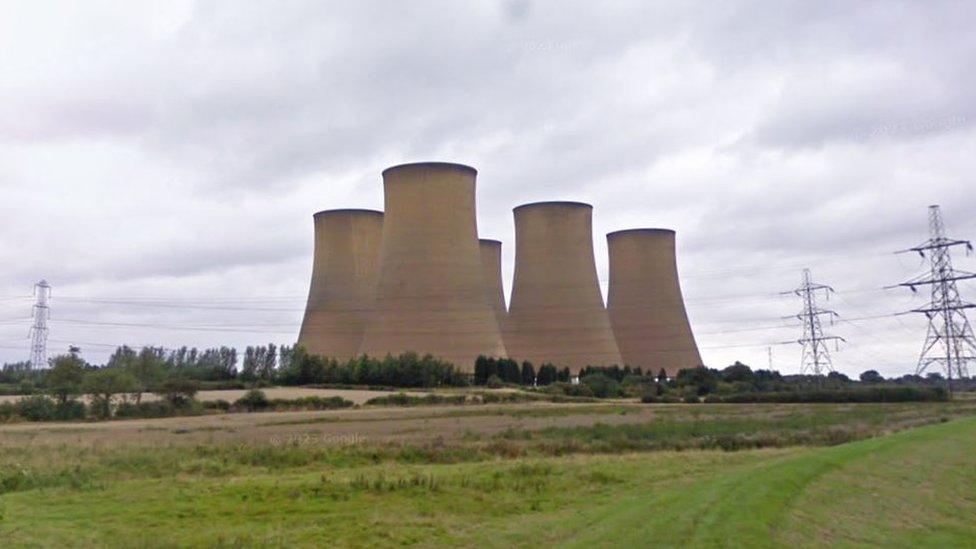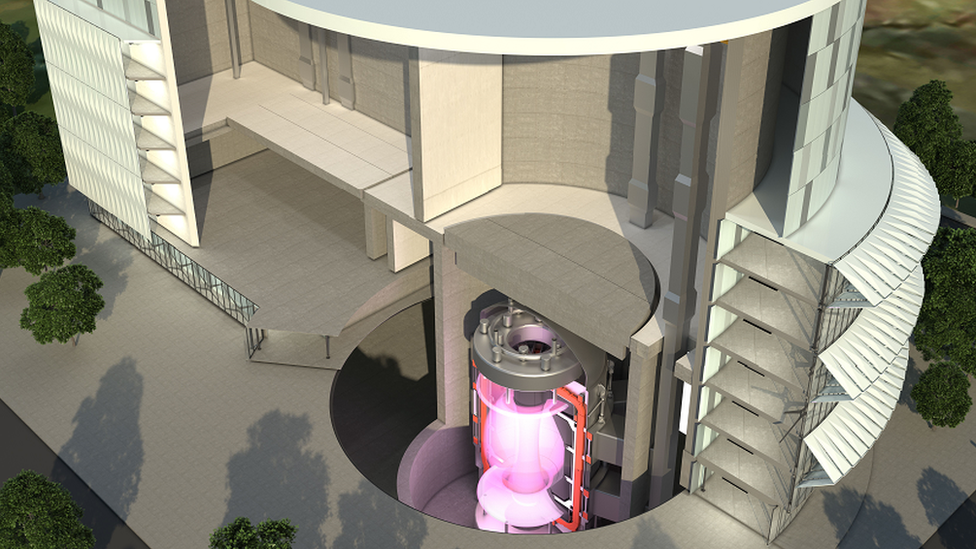Nottinghamshire: Ammonia gas to hydrogen power test site approved
- Published

The testing site will be based at the now-demolished High Marnham power plant in Bassetlaw
A new type of power station designed to test the concept of turning ammonia gas into hydrogen has been approved.
The renewable energy testing site will be built at the former High Marnham power station in Nottinghamshire.
Applicant JG Pears was one of 11 groups to receive cash from the government's first round of funding for hydrogen projects in December.
Bassetlaw District Council's planning committee approved the scheme on Wednesday.
The "cracking" process sees ammonia heated and broken into hydrogen - a possible greener fuel of the future - and harmless nitrogen gas, the Local Democracy Reporting Service (LDRS) said.
The High Marnham power plant will produce 200kg of hydrogen per week, equivalent to about three tank loads, the LDRS added.
The plant is small in scale and capable of producing 9.3MW per year - meaning the hydrogen produced each day would be enough to power a small fleet of gas-powered buses.
The applicant will also be required to place ammonia detectors around the site.
If successful, the systems and technology at the site could be scaled up elsewhere and go towards meeting the UK's targets for renewable energy.
'Cumulative impact'
However, concerns were raised from parish councillors about development on the site, which has not been in use for more than 20 years.
Dunham and District parish councillor Rachel Bean told the committee: "We are in favour of renewable energy and know the site will be redeveloped at some point.
"However, we don't believe the number of HGV movements will be minimal, as the developer claims.
"Every house here is close to the road, and there is a cumulative impact from so many vehicles on these twisty village roads."

Follow BBC East Midlands on Facebook, external, on X, external, or on Instagram, external. Send your story ideas to eastmidsnews@bbc.co.uk, external.
Related topics
- Published3 October 2022
